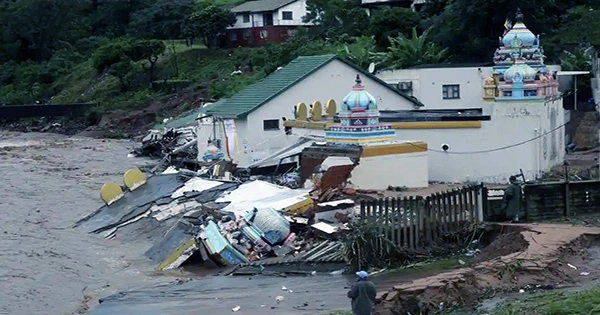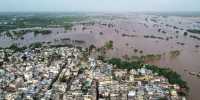Following disastrous floods that killed more than 300 people, the South African province of KwaZulu-Natal has declared a state of emergency. The catastrophic calamity has already been dubbed one of South Africa’s worst weather disasters in history. Poor infrastructure and low-lying, poorly-built buildings have been criticised by residents, with officials emphasising that the storm’s scale was unprecedented.
Storms in the region have recently been studied by scientists, with an emphasis on neighboring Mozambique, Madagascar, and Malawi. The study, which was released by World Weather Attribution, shows how the ongoing climate crisis is intensifying and destroying these storms.
Their findings are closely tied to another recently released study that found that, as a result of obviously human-caused climate change, hurricanes in the Atlantic are becoming stronger and dumping more rain. The increased severity of storms puts individuals who are already at danger in some countries in jeopardy. Extreme weather crises exacerbate inequalities and vulnerabilities because those most vulnerable to them are less likely to have the means, influence, or infrastructure to deal with them.
“This analysis backs up what volunteers with the Red Cross and Red Crescent have been telling for a long time: the rains have altered. They are more severe, and people have less time to recuperate before the next disaster strikes “Roop Singh, a co-author of the South Africa study and a representative of the Red Cross Red Crescent Climate Centre, said in a statement.
“We must invest in the most susceptible infrastructure, processes, and people so that they can endure larger storms and compounding threats.” According to a fast review by an international team of prominent climate scientists, climate change rendered heavy rainfall heavier and more likely during multiple back-to-back storms in early 2022 in Madagascar, Malawi, and Mozambique.
The World Weather Attribution group, directed by Dr Friederike (Fredi) Otto of Imperial College London, set out to quantify the impact of climate change on specific extreme weather events, a new field known as ‘attribution’ science. While the study found that climate change exacerbated these events, the researchers were unable to quantify how much climate change caused the event due to a scarcity of high-quality meteorological observations in this portion of Africa.
















